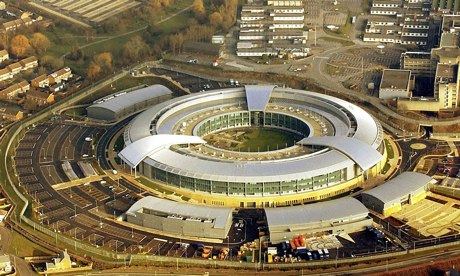guardian | The Law Society is considering issuing new guidance to solicitors across England and Wales amid growing concern that the government's mass online surveillance operations are undermining their ability to take legal cases against the state.
Lawyers
representing people who make serious complaints against the police,
army or security services fear the industrial-scale collection of email
and phone messages revealed by the Guardian over the past four months is
threatening the confidential relationship between them and their
clients, jeopardising a crucial plank of the criminal justice system.
"These
are absolutely fundamental issues," said Shamik Dutta, from Bhatt
Murphy lawyers in London. "The NSA revelations are having a chilling
effect on the way a crucial part of the justice system operates.
Individuals who are making serious allegations of wrongdoing against the
state are becoming increasingly concerned about whether the information
they share with their lawyers will remain confidential."
Files leaked by the whistleblower Edward Snowden show the British eavesdropping centre, GCHQ,
and its American counterpart, the National Security Agency, have
developed capabilities to undertake mass surveillance of the web and
mobile phone networks. This is done by trawling the servers of internet companies and collecting raw data from the undersea cables that carry web traffic.
Two
of the programmes, Prism and Tempora, can sweep up vast amounts of
private data, which is shared between the two countries. The Guardian
recently revealed how GCHQ and the NSA have also successfully cracked
much of the online encryption relied upon by hundreds of millions of
businesses and individuals to protect their privacy.
The
Law Society expressed concern about the possible impact on lawyers'
day-to-day work. "The ability of clients to consult and receive advice
from lawyers with certainty of absolute confidentiality is fundamental
to the rule of law and the values of our democracy," it said in a
statement. "The Law Society would regard it as very serious indeed if
privileged correspondence were to be intercepted. We are looking at the
issue and considering whether there needs to be advice given to the
profession."
A spokesperson for the Bar Council said the "enormous
developments in the cyber world over the past decade" meant it was
right to question whether the proper safeguards were in place. "The
public need to be reassured that powers to intercept communications are
properly exercised. We have long had concerns that the existing
legislation fails to respect the right of individuals to consult
privately with a lawyer. Any increase in the scope of the authorities'
data gathering activities must be matched by the establishment of real
protection for this fundamental aspect of the administration of
justice."
Eric King, head of research at Privacy International,
said there were real fears in the legal profession about confidentiality
being breached by the security services following the NSA revelations.
"We are astonishingly concerned about privileged communications being
swept up as part of the mass surveillance programmes we have learned
about over the past few months," he said.
"When you are talking
about litigation involving major cases that challenge significant
government policy, the intelligence that could be gained and the change
in strategy that could be deployed by obtaining an idea of what the
claimants were seeking to challenge, it could easily tip the balance
decisively in what are critical cases."



0 comments:
Post a Comment